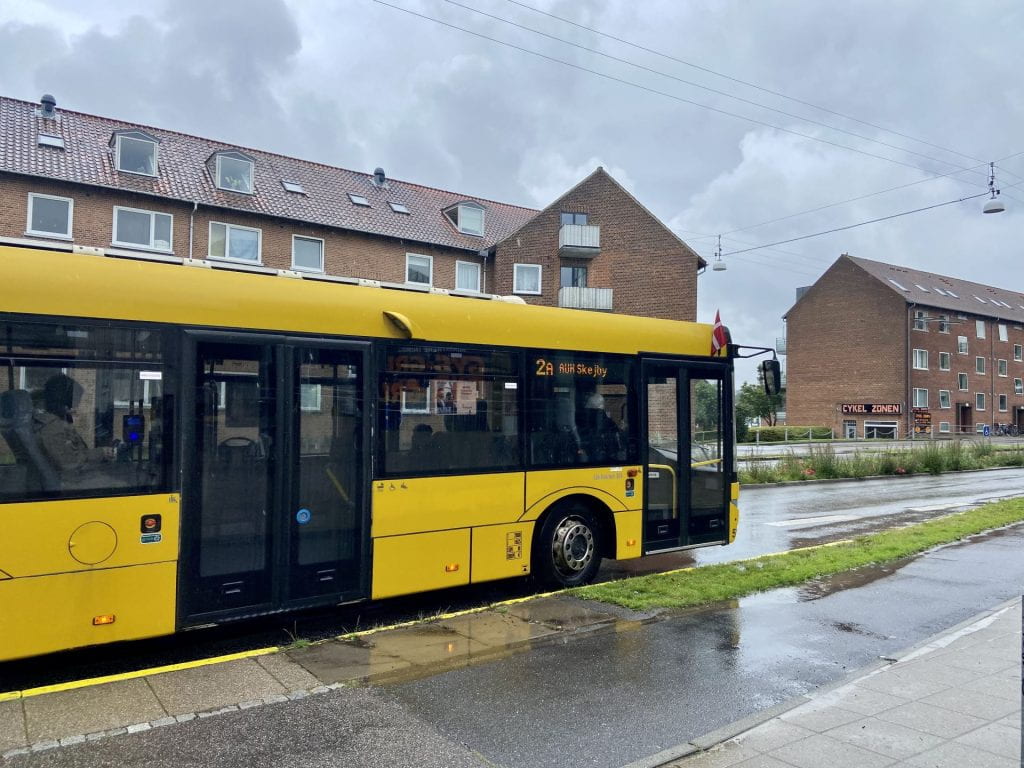
Aarhus is a city that most would describe as a modern and lively place. A haven to whoever comes to reside beside its brick walls and overflowing ports. City, that prides itself upon its inclusivity and equal rights for all its citizens. In many ways, all this may be accurate. However, for some, it is far from the truth.
By Romana Ronja Ptáčková
At first sight, the Aarhus public transportation seems accessible to everyone. People with disabilities have the option to travel by lift buses and earmarked cars. Most train stations are equipped with lifts and even offer assistance if booked in advance. The city provides a satisfying number of parking and wheelchair spaces. It is also possible to obtain a traveling card that ensures a fifty percent discount. Public transportation such as bus routes, train connections, and services are overviewed by Midttrafik company. Midttrafik claims to promote easy accessibility and some part of disabled customers feel rather satisfied with their work. One of them is Lia, a woman with a visual disability accompanied by her service dog Vera. “I’m quite happy with the public transportation, to be honest. I think the drivers are nice, sometimes they even ask the people to move a little bit. Also, they are really sweet with my dog,” says Lia about her experience with city buses. Unfortunately, not all disabled feel like Lia.
For wheelchair users especially, traveling by bus can be a challenge. That is because of an issue that they encounter daily. According to Midttrafik guidelines, it is required for people using wheelchairs to have a personal assistant to help them access the bus via a ramp. Bus drivers are not obliged to help. “This is a problem, and a lot of people cannot travel on their own. The idea might be OK if everyone had personal assistance. But of course, not everyone has an assistive person so it’s very unfortunate, “reacts Ulla Krammer, secretary at the God Adgang organization that focuses on accessibility in Denmark. Such a rule makes it difficult for wheelchair users to move independently and they often must endure unpleasant comments from drivers when they ask for help. It also goes against the disability policy of the city Aarhus which states that all citizens are given the option to live an independent life and that all have equal opportunities to be an active and full member of society.
This topic gained more attention in the year of 2021 when disabled international student Niamh Ní Hoireabhaird shared a story when she was denied the driver’s help when getting on the bus. As a result of which she became the victim of a serious accident. “I’m exhausted of living in a world where it’s impossible to be independent and having to rely on kindness when a lot of people are really not kind,“ the Irish wheelchair user and disability advocate wrote on her Twitter account. Two years after the incident, nothing has changed. However, according to the Ulla Kramer, there are ways to improve the situation. “The solution is in the long run that we need to change the buses so that they have electric ramps that can be activated when needed,” believes the God Adgang secretary. Investing in these technologies would be a significant help to the disabled community. Such improvements would allow wheelchair users to gain independence while performing everyday tasks and move the city of Aarhus closer to fulfilling its disability policy.